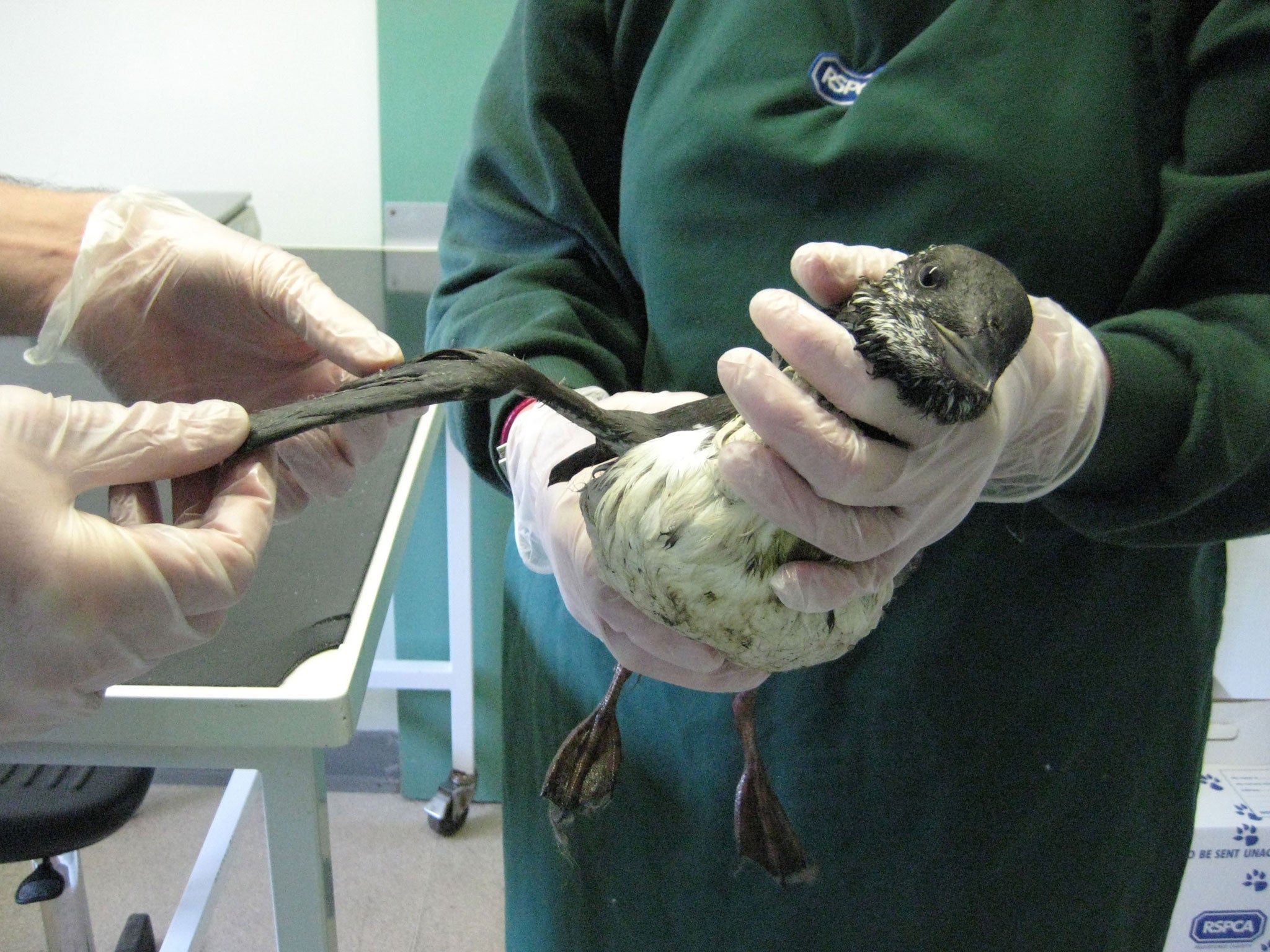Mystery deepens as increasing numbers of stricken birds wash up on Dorset coast

Your support helps us to tell the story
From reproductive rights to climate change to Big Tech, The Independent is on the ground when the story is developing. Whether it's investigating the financials of Elon Musk's pro-Trump PAC or producing our latest documentary, 'The A Word', which shines a light on the American women fighting for reproductive rights, we know how important it is to parse out the facts from the messaging.
At such a critical moment in US history, we need reporters on the ground. Your donation allows us to keep sending journalists to speak to both sides of the story.
The Independent is trusted by Americans across the entire political spectrum. And unlike many other quality news outlets, we choose not to lock Americans out of our reporting and analysis with paywalls. We believe quality journalism should be available to everyone, paid for by those who can afford it.
Your support makes all the difference.Increasing numbers of stricken birds are washing up on the south coast after being covered in a mysterious substance.
Wildlife experts are no closer to discovering the cause of the environmental damage, which has seen more than 100 seabirds taken into care at the RSPCA West Hatch wildlife centre in Taunton, Somerset, since yesterday.
Most of the birds, guillemots, were found at Chesil Beach, near Portland in Dorset. One bird was found alive as far as Worthing in west Sussex, and is now being cared for at a veterinary surgery. Another, found in the Isle of Wight, is now at a local animal rescue centre.
Around 200 miles of the English coastline is being investigated. The Environment Agency has taken samples of the water for testing.
RSPCA deputy chief inspector John Pollock, who has been leading the rescue mission in Dorset, said: "We just do not know what this substance is.
"It is white, odourless and globular, like a silicone sealer. The best way I can think to describe it is 'sticky Vaseline'.
"The numbers of the birds coming in have been growing and sadly there were quite a few dead birds this morning.
"We are still down at the beach, though, collecting and trying to save as many of them as we can. We are expecting this rescue mission to continue through the weekend."
The Maritime and Coastguard Agency (MCA) is waiting to hear from the Environment Agency later today in order to discover the possible cause of the pollution.
A spokesman said: "The MCA is regularly called upon to react to a wide range of maritime incidents and to develop a comprehensive response procedure to deal with any emergency at sea that causes pollution or threatens to cause pollution.
"This occurrence of seabirds being washed up on south coast beaches contaminated with a product is rare. We are working with partner organisations and agencies to deal with this event.
"The Environment Agency has taken samples of the product and is currently analysing it to identify it.
"The RSPCA and RSPB are collecting data and the contaminated birds are being cleaned at the RSPCA West Hatch Wildlife Centre in Somerset.
"We will continue to monitor this situation and await the results of the analysis of the product."
An RSPCA spokesman said they were pleased with the public's willingness to help the stricken birds, but warned of the dangers involved.
The spokesman said: "We would urge people to be cautious going down to the coastline affected.
"The instinctive reaction is to go down and look, or to help out. But we don't know what this substance is, so our message is for people - especially those taking dogs down to the coastline - to please be careful."
PA
Join our commenting forum
Join thought-provoking conversations, follow other Independent readers and see their replies
Comments